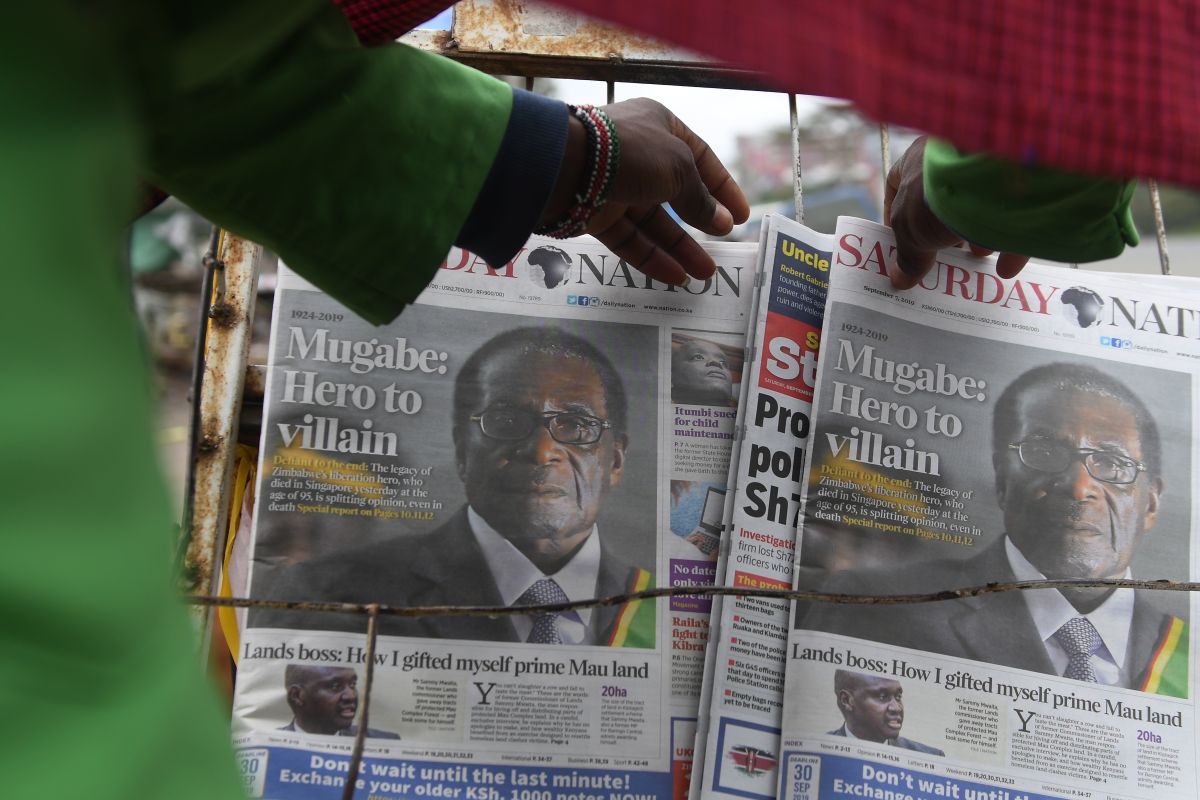Nature’s sting operation: Yellow fever unmasked
Yellow fever is a menacing disease which has caused the death of enormous numbers of people in the past.
It was more than an albatross around his neck that he had to bear till his final hours on Friday.

A man buys a daily newspaper at a stand on the streets of Nairobi, on September 7, 2019, following the death of former Zimbabwe president Robert Mugabe, guerrilla hero turned despot who ruled Zimbabwe for 37 years. Mugabe, 95, passed away on September 6, 2019 in Singapore, where he had been hospitalised in April. First heralded as a liberator who rid the former British colony Rhodesia of white minority rule, Mugabe used repression and fear to govern until he was finally ousted by his previously loyal generals in November 2017. (SIMON MAINA / AFP)
An era in African history ends with the passing of Robert Mugabe in Singapore on Friday. At 95, he would perhaps have died a happier man if Zimbabwe’s ruling Zanu-PF party had declared him as a “national hero” during his lifetime. Given the proclivity of the former President to stoke controversies and the possible reaction within Africa and the Europe of the whites, the party waited for his funeral to get under way in the nation that he ruled with an iron first for almost 40 years, indeed since his election in 1980 and till his ouster in a military coup in 2017.
Despite the fact that he was in limbo for the past two years, his struggle against racism and his death do mark the definitive end of a phase in the former British colony. Reactions to his death have been mixed in Zimbabwe, across Africa, and around the world ~ in itself a commentary on the inherent contradictions of the man. Which explains why paeans went hand in hand with furious debunking. Initially hailed as a hero of Africa’s independence struggle, his long rule was mired in tyranny and corruption. In a sense, he was a benevolent repressor, whose standing in the continent of Africa was over the decades reduced to that of an international pariah.
Advertisement
It was more than an albatross around his neck that he had to bear till his final hours on Friday. There is little doubt that Mugabe was an icon of liberation, a “pan-Africanist” who dedicated his life to the emancipation and empowerment of his people. So far, so reassuring. In death as in life, the repressive nature of his personality has tempered the salutation. Very succinctly has he been sized up by neighbouring South Africa’s ruling African National Congress. He has been praised as a “friend, statesman and revolutionary comrade”.
Advertisement
In a statement, the ANC acknowledged that it had sometimes “differed vociferously” with him though he was indubitably “an ardent and vocal advocate of African unity and selfreliance” whose struggle had been an inspiration. His final years in power were characterised by financial collapse, violent intimidation and a vicious internal power struggle. Opposition to his rule intensified in 1999 as the economy floundered and trade unions organised the Movement for Democratic Change. Mugabe rigged elections and began a programme of land reform in which white farmers were forcibly evicted to make way for Zanu-PF partymen or black Zimbabweans who lacked the skills and capital to farm.
In the net, Zimbabwe was on the cusp of economic disarray, marked by hyperinflation and empty supermarket shelves. The school and health systems began to crumble. The political environment became increasingly hostile, with activists and journalists persecuted, jailed or murdered. He brought massive destruction to Zimbabwe but was a product of his era. He was a liberation leader, but never a national leader. Robert Mugabe’s epitaph can be as stark as that.
Advertisement